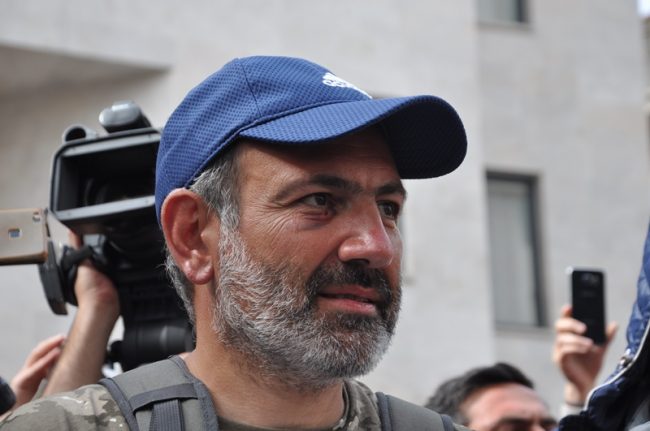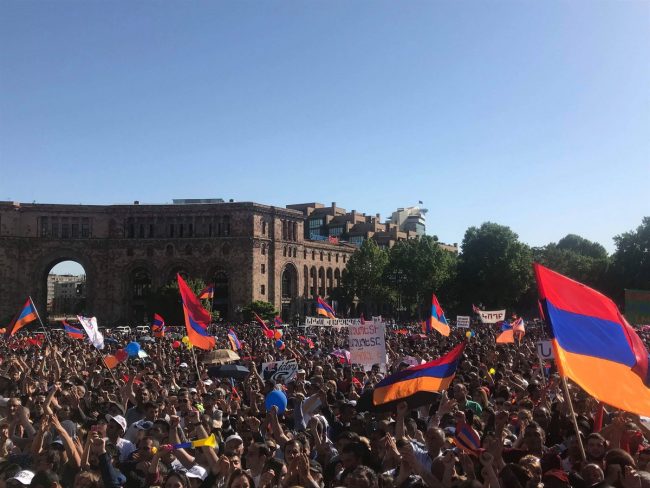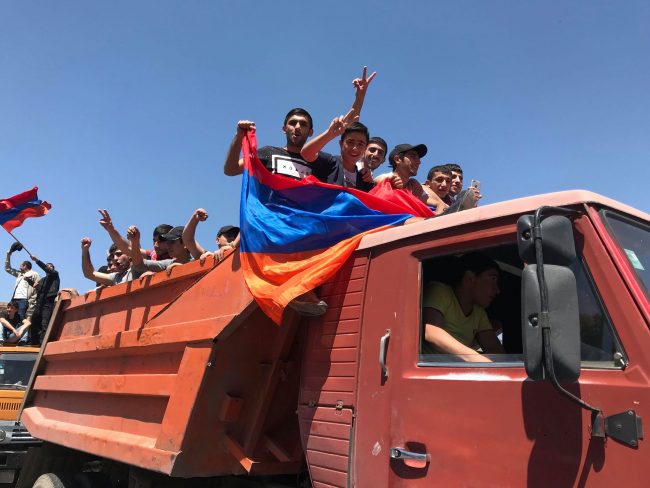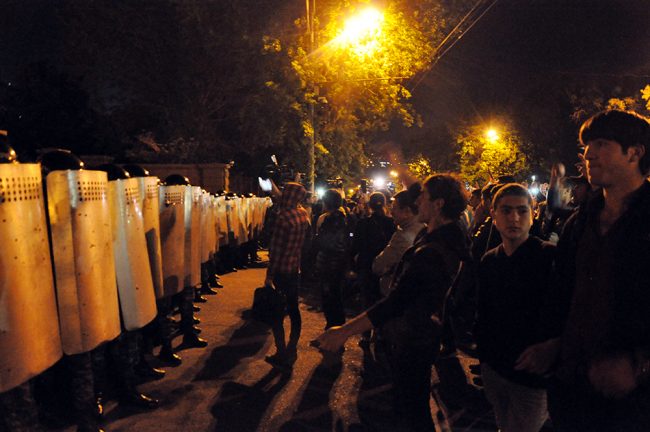

 The leader of Armenian protests Nikol Pashinyan has called on people to pause demonstrations, after the ruling Republican Party suggested they might support his appointment as prime minister in a vote on 8 May.
The leader of Armenian protests Nikol Pashinyan has called on people to pause demonstrations, after the ruling Republican Party suggested they might support his appointment as prime minister in a vote on 8 May.
On Wednesday, the Republican Party announced they will not present their own candidate and will support one who gains the support of one-third of MPs.
Pashinyan said he held a meeting with opposition party’s the Tsarukyan Alliance, the Armenian Revolutionary Federation, and Yelk Bloc yesterday, who promised to nominate him as PM. Together they hold 47 of 105 seats in the national assembly, 45%.
‘Today, the [Republican Party] had a meeting and they announced that they will support the people’s candidate. In other words, if we take into consideration today’s political announcements, then during the second round of elections, your candidate will be elected PM’, Pashinyan told a rally yesterday, according to the EVN Report.
He told the crowd to take rest on 3 May. ‘We need to prepare documents and understand more carefully the position of the Republican Party. We propose the following scenario — we will not have any acts of civil disobedience. You, the people, can rest. We will work in parliament’, he said. According to EVN Report, he also promised that on 8 May they would gather ‘not 250,000 but with 500,000 people’.

Mass protests throughout Armenia gained a second wind on Wednesday after parliament failed to appoint Pashinyan as prime minister on 1 May. Pashinyan has been demanding a ‘full transfer of power’ from the ruling Republican Party to his movement.
In a 20th day of mass protests in Yerevan and other areas of the country, tens of thousands of protesters paralysed the city’s main arteries, shut down the metro, and temporarily blocked the road leading to Zvartnots International Airport.
Labour strikes were also reported throughout the country, including Armenia’s second and third biggest cities, Gyumri and Vanadzor, with several officials joining the protests in the Tavush Province of northeastern Armenia.
Unless a PM is elected in the second vote on 8 May, the Armenian constitution requires parliament be dissolved and snap elections held.


[Read more about developments in Armenia on OC Media: Mass civil disobedience in Armenia following Pashinyan’s failed PM bid]
A ‘Velvet Revolution’
Small protests loosely organised around the slogan ‘No to Serzh’ began in March. Since 13 April, tens of thousands have come out to the streets daily in what Pashinyan has called a ‘velvet revolution’. The protests were initially limited to opposing former president Serzh Sargsyan’s appointment as prime minister, but their demands later expanded to include a new government from outside the ruling Republican Party, and new elections to be held under a new electoral code.
OSCE observers noted that the previous parliamentary elections, in 2017, were ‘tainted by credible information about vote-buying, and pressure on civil servants and employees of private companies’.
Following constitutional changes passed in 2015, Armenia’s parliament, the National Assembly, is now in charge of electing the prime minister. With Armenia’s shift from a semi-presidential to a parliamentary system, the prime minister is the most powerful position in the country.
Having previously played down suggestions he would run again for political office, Sargsyan, having served the maximum 10 years as president, announced on 11 April that he would seek the position of prime minister. On 17 April, he was sworn in as PM by Armenia’s parliament, the National Assembly. He resigned on 23 April after 11 days of protests.









